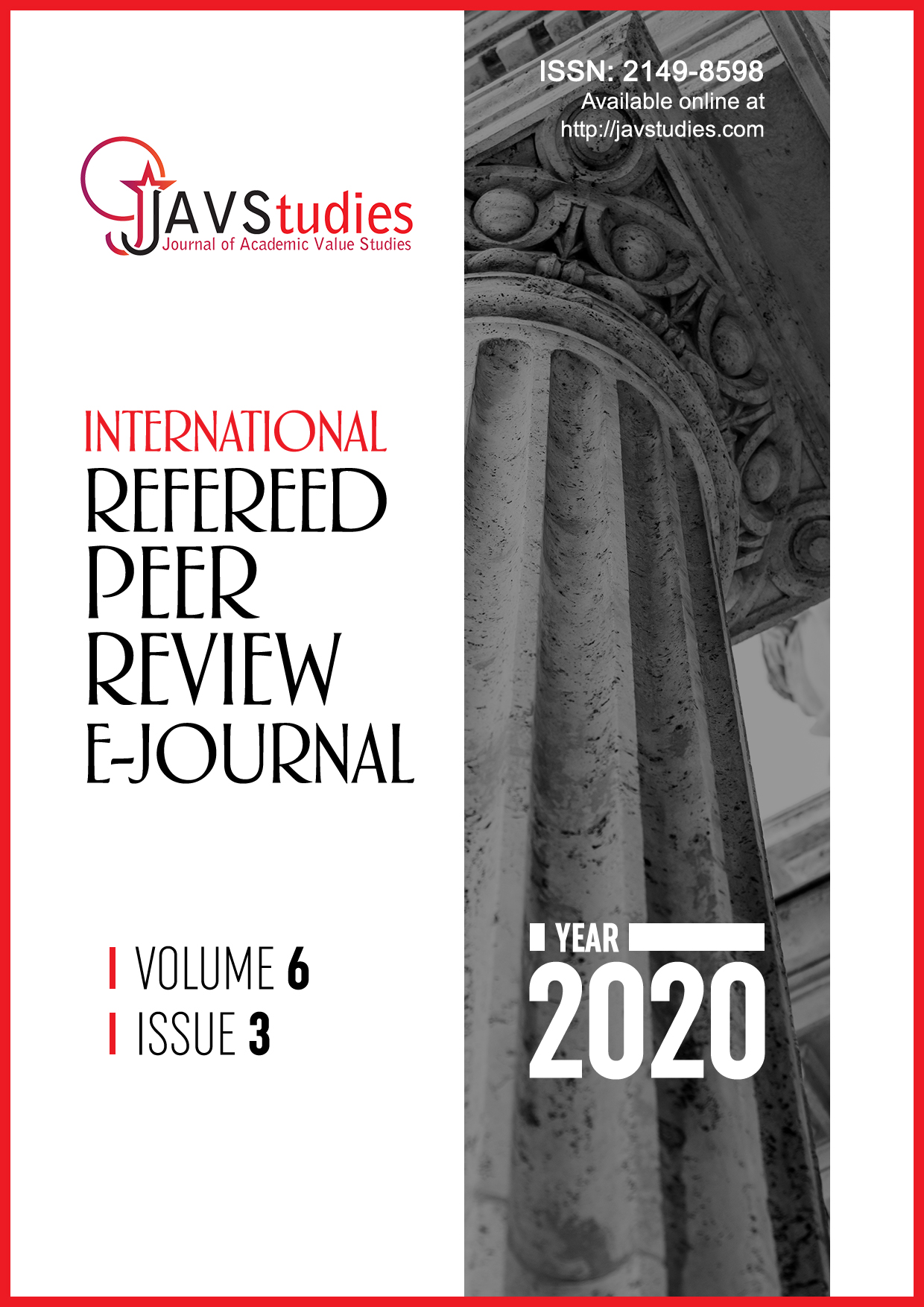Kurumsal Performansı Arttırma Döngüsü Olarak Balance Scorecard İle Entegre Edilmiş Faaliyet Tabanlı Bütçeleme Modeli
Author :
Abstract
Muhasebe; stratejik katmanlarda toplanan finansal ve finansal olmayan verilerden anlamlı analizlerin çıkarılmasında, veriler arasındaki gizli örüntüleri gösterecek sistemlerin kurulmasında ve bütçelerin hazırlanmasında etkin, etkili ve stratejik öneme sahiptir. Muhasebede üretilen bilgiler ile desteklenen bütçeler üst yönetimin stratejik işlevlerini yerine getirmek için gerekli olan enformasyonu sağlamaktadır. Bununla birlikte yönetim ve denetim kurullarına karşı hesap vermede kılavuz niteliği taşımaktadır. İşletme varlıklarının korunması ve sürekli kılınabilmesi yönünde geliştirilen refleks davranış modellerinin başında bütçeleme ve değerlendirme çalışmaları gelmektedir. Bu çalışma Balance Scorecard ile Faaliyet Tabanlı Bütçeleme modelinin entegrasyonu üzerine odaklanmaktadır. Bu entegrasyonun işletmelere birden fazla yarar sağlayacağı öngörülmektedir. İlk olarak bu entegrasyon sayesinde planlama sürecinde stratejiler arasında neden sonuç ilişkileri kurulmaktadır. Sonrasında işletmenin finansal stratejilerine katkı sağlamayan stratejilerin elimine edilmesini sağlayacak bir model geliştirilmektedir. Performans perspektifinden incelendiğinde; bu entegrasyonun daha verimli performans analizlerinin yapılabilmesine olanak sağladığı görülmüştür. Aynı zamanda stratejik odaklı beklentileri karşılamaya katkı sağlayacağı doğrulanmıştır. Çalışmada Balance Scorecard ile Faaliyet Tabanlı Bütçelemenin birlikteliğini sağlamaya yönelik bütünleşik bir metodolojinin nasıl oluşturulabileceği betimsel olarak incelenmiştir. Çalışma teorik çerçevede ortaya konmuş, pratikte gerçekleştirme koşulları tartışmaya açık bırakılmıştır.
Keywords
Abstract
Accounting has an active, effective and strategic importance in extracting meaningful analysis from financial and non-financial data collected in strategic layers, establishing systems that will show latent patterns between data and preparing budgets. Budgets, supported by the information produced in accounting, provide the information required to fulfill the strategic functions of the senior management. In addition, it serves as a guide for accountability to management and supervisory boards. Budgeting and evaluation studies are the leading reflex behavioral models developed to protect and sustain enterprise assets. This study focuses on the integration of Balanced Scorecard and Activity Based Budgeting model. It is predicted that this integration will bring multiple benefits to businesses. First of all, through this integration, cause-effect relationships are established between strategies in the planning process. Subsequently, a model is developed to eliminate strategies that do not contribute to the financial strategies of the business. When analyzed from the perspective of performance, it was observed that this integration enabled more efficient performance analysis. It was also confirmed that it would contribute to meeting strategically focused expectations. In the study, how an integrated methodology can be created to ensure the unity of Balanced Scorecard and Activity Based Budgeting was examined descriptively. The study was presented in a theoretical framework, and the conditions for realization in practice were left open to discussion.
Keywords
- Akgemci, T. (2007). Stratejik Yönetim. Gazi Kitabevi, Ankara.
- Atrill, P. ve McLaney, E. (2009). Management Accounting for Decision Makers. Pearson Education Limited, Sixth Edition, England.
- Coskun, A. (2006). Stratejik Performans Yönetimi ve Performans Karnesi. Literatür Yayıncılık, İstanbul.
- Dury, C. (2018). Management and Cost Accounting. Cengage Learning EMEA, 10th Edition, UK.
- El Gibaly, M. M. & Diab, A. A. (2012). A Model to Integrate of the ABC and the BSC in the Egyptian Companies: Aligning Strategic Efficiency and Performance Improvement (Field Study). Journal of American Science, 8(6).
- Gawankar, S. et al. (2015). Performance Measurement Using Balance Score Card and its Applications: A Review. Journal of Supply Chain Management Systems, Volume: 4, Issue: 3.
- Groot, T. & Frank, S. (2013). Advanced Management Accounting. Pearson Education Limited, UK.
- Hansen, S. C. (2011). A Theoretical Analysis of the Impact of Adopting Rolling Budgets, Activity-Based Budgeting and Beyond Budgeting. European Accounting Review, Volume: 20, No: 2.
- Huynh, T. et al. (2013). Integration of Activity-Based Budgeting and Activity-Based Management. International Journal of Economics, Finance and Management Sciences, 1(4).
- Janikova, D. (2011). Draving Up a Budget Using the Activity Based Budgeting Methodology Through the Simulation of Processes, Quality Innovation Prosperity. Technical University of Kosice, Department of Integrated Management, Volume: 15 (2).
- Kaplan, R. S. & Norton, D. P. (1992). The Balanced Scorecard: Measures That Drive Performance. Harward Business Review, Volume: 70, Issue: 1.
- Kaplan, R. S. & Norton, D. P. (1993). Putting the Balanced Scorecard to Work. Harward Business Review, Volume: 71, Issue: 5.
- Kaplan, R. S. & Norton, D. P. (1996a). Balanced Scorecard Şirket Stratejisini Eyleme Dönüştürmek. (Çeviren: Serra Egeli), Sistem Yayıncılık, İstanbul.
- Kaplan, R. S. & Norton, D. P. (1996b). Linking the Balanced Scorecard to Strategy. California Management Review, Volume: 39, No: 1.
- Kaygusuz, S. Y. & Dokur, Ş. (2009). İşletmelerde Stratejik Planlama ve Bütçeleme. Dora Yayıncılık, Bursa.
- Lin, W. C. & Yahalom, S. (2009). Target Performance Management for an International Shipping Harbor: An Integration Activity-Based Budgeting with a Balanced Scorecard Approach, the Case of Keelung Harbor. African Journal of Business Management, Volume: 3(9).
- Melese, F. et al. (2004). A New Management Model for Government: Integrating Activity Based Costing, the Balanced Scorecard and Total Quality Management with the Planning, Programming and Budgeting System. International Public Management Review, Volume: 5, Issue: 2.
- Niven, P. R. (2005). Balanced Scorecard Diagnostics Maintaining Maximum Performance. John Willey & Sons Inc., New Jersey.
- Pietrzak, Z. (2013). Traditional versus Activity-based Budgeting in Non-manufacturing Companies. Social Sciences, Volume: 82, No: 4.
- Robinson, M. (Ed.) (2007). Performance Budgeting Linking Funding and Results. Palgrave Macmillan, New York.
- Santosuosso, P. (2013). Integration of Ethical Values into Activity-Based Budgeting. International Journal of Business and Management, Volume: 8, No: 20.
- Shim, J. K. et al. (2012). Budgeting Basics and Beyond. John Willey & Sons Inc., Fourth Edition, New Jersey.
- Stevens, M. E. (2004). Activity-Based Planning and Budgeting: The Coming of Age of the “Consumption-Based” Approach”. The Journal of Corporate Accounting & Finance, 15 (3).
- Yükçü, S. (2007). Yöneticiler için Muhasebe: Yönetim Muhasebesi. Birleşik Matbaacılık, İzmir.





